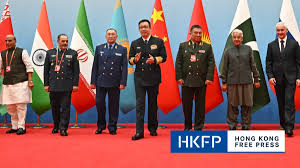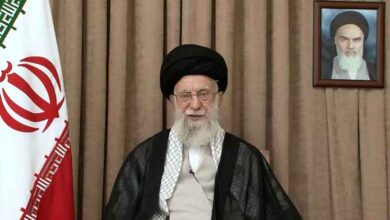NEW DELHI: Indian Army Chief General Upendra Dwivedi’s recent visit, in full military uniform, to the ashram of Hindu spiritual leader Jagadguru Rambhadracharya, has sparked serious concerns over India’s secular military traditions and the potential impact on regional peace.
During the controversial meeting, the Hindu cleric reportedly requested the Indian Army Chief to “reclaim” Pakistan-Occupied Kashmir (POK) as a religious duty (Dakshina), a proposal the Army Chief allegedly accepted.
“The Indian army chief came to me. He received initiation from me in the Ram Mantra – the same mantra that Hanuman ji received from Sita ji and achieved victory over Lanka”, the Hindu cleric said.
“Afterwards, when the matter of ‘dakshina’ came up, I said I would ask for a ‘dakshina’ that no teacher has ever asked for before. I said, ‘I want PoK [Azad Kashmir], this is my dakshina. He accepted my request. We are ready to give Pakistan an appropriate response.”
Indian journalist Sushant Singh, a former military officer, condemned the event on X (formerly Twitter), calling it a “dangerous path.”
“Civil-military relations are strained when top commanders align with partisan religious narratives. It weakens the secular character of the armed forces and alienates minority communities,” Singh wrote. He also slammed the army chief for skipping a key defence event in Delhi, attended by senior defence officials.
Last year, the Indian army issued directives reminding military officials to follow the code of conduct prohibiting the display of religious symbols while in uniform.
This incident highlighted a dangerous trend of intertwining religion with state and military affairs, previously seen in the growing inclusion of religious rituals in official and military events. Such developments indicate a gradual deviation from the Indian armed forces’ traditionally secular foundations.
Analysts warned that the militarisation of religious nationalism not only threatens the constitutional neutrality of the Indian military but also poses serious risks to regional stability, particularly in South Asia.
The fusion of religious rhetoric and military ambition could escalate tensions with neighboring Pakistan, further complicating the Kashmir dispute and undermining efforts toward peace in the region.







